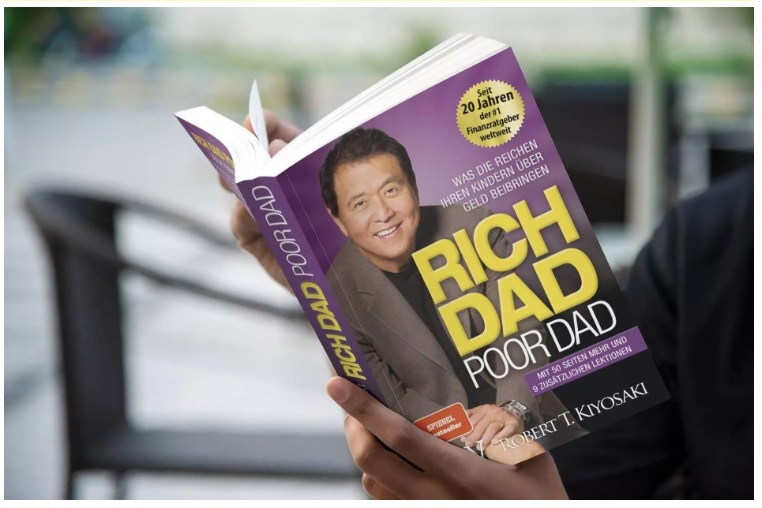“Rich Dad, Poor Dad” by Robert Kiyosaki is a bestselling personal finance book that has sold millions of copies worldwide. The book is based on Kiyosaki’s own experiences growing up with two dads. One, his biological father, who struggled financially, and his best friend’s father, who became his financial mentor. The book encourages readers to think differently about money and investing, and to take control of their financial futures.
One of the main themes of “Rich Dad, Poor Dad” is the importance of financial education. Kiyosaki argues that the traditional education system does not teach people how to manage money or create wealth. This lack of education is a major reason why so many people struggle financially. He encourages readers to take responsibility for their own financial education. They should learn as much as they can about investing, money management, and personal finance.
Another key theme of the book is the importance of building assets, rather than just earning a salary. Kiyosaki argues that people who rely solely on a salary will never become truly wealthy. Instead, they will always be limited by the amount of money they can earn. Instead, he encourages readers to focus on building assets, such as real estate, stocks, and businesses, that can generate passive income. He also emphasizes the importance of understanding the difference between assets and liabilities, as well as, avoiding liabilities that can drain away your wealth.
The book has an easy-to-understand writing style and practical advice. Many readers have found that Kiyosaki’s personal anecdotes and real-life examples make the concepts in the book easy to relate to and understand. The book also encourages readers to take action and start making changes in their own financial lives, which has been seen as a positive aspect.
However, some critics claim it has a lack of detail and presents an oversimplification of complex financial concepts. Some reviewers have also argued that Kiyosaki’s advice may not be appropriate for everyone and that his strategies may not work for everyone. The New York Times has said “It is a work of advocacy, not of objective information. It is not a balanced or nuanced account of the ways of the rich.”
In conclusion, “Rich Dad, Poor Dad” has helped millions of people change the way they think about money and investing. The book’s emphasis on financial education and building assets has resonated with many readers, and its easy-to-understand writing style and practical advice have made it a popular choice among those looking to improve their financial situation. It is important to keep in mind that the book is a work of advocacy and not of objective information. It is not a balanced or nuanced account of the ways of the rich.
Other links
Also check out Read This: The Power of Now and Read This: The Subtle Art of Not Giving a F*ck.

